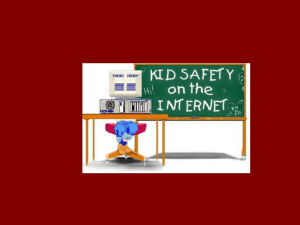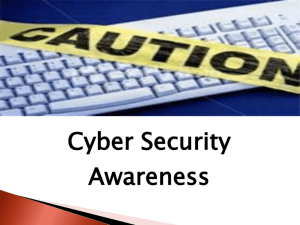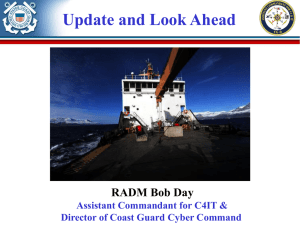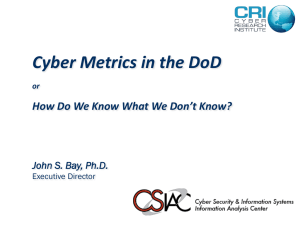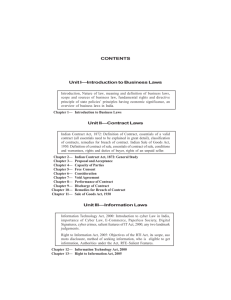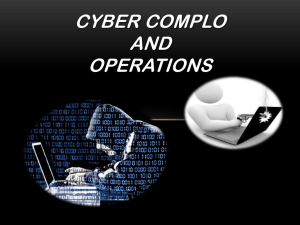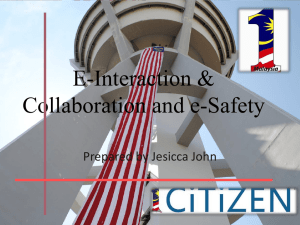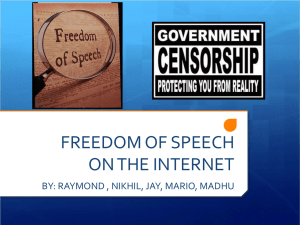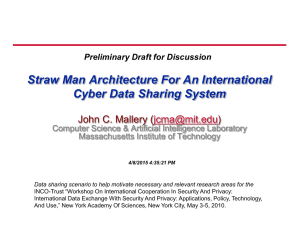18_-_WSEMA-18September2013
advertisement
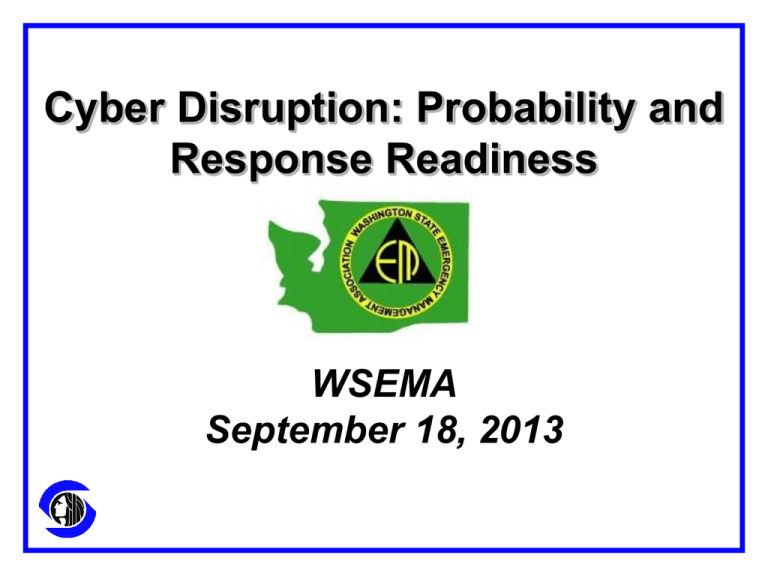
Cyber Disruption: Probability and Response Readiness WSEMA September 18, 2013 SHORT BIO • • • • • • • Partner, MK Hamilton and Associates CISO, City of Seattle Managing Consultant, VeriSign GSC Senior Principal Consultant, Guardent Independent Security Consultant CEO, Network Commerce, Inc. Ocean Scientist, NASA/JPL Don’t Try This • Enabling Kevin Mitnick • JPL, SunOS 4.13, and SATAN • Accessing credit cards • Oceanographic hacking • FreeBSD and the FWTK • The Bad Guys • Network Commerce Inc. Security Philosophy • Assume breach • Preventive controls not good enough • Detective controls more imperative as device population grows • Focus on key assets and event detection • Mobile security should be carefully evaluated • Prevention on the "network of things" will not scale Cyber Meets Emergency Services • Emergency response driven by IT disruption • What it would look like • What we normally do • How response is different • What we know now • How we are addressing the problem Local Government Services that affect quality of life, and life We’d like them to be there 6 My Perspective • Credit cards, IP, and Infrastructure • Hacktivists, organized crime, and nation-states • Capability, meet intent Critical Infrastructure Now the target of most attacks Overall cyber attacks are up, but most dramatically in the last year, the type of attack has shifted away from hacking and financially motivated crime toward cyber espionage focused on critical infrastructure, such as utilities, according to research from communications provider Verizon. “These aren’t about stealing data and fraud, they’re about deny, disrupt and destroy,” said Bryan Sartin, director of investigative response for Verizon. In its upcoming Data Breach Investigation Report, a yearly document that is one of the more noteworthy surveys of attacks released to the public, the company found that cyber espionage, once a far lesser component of the attack volume, is now dominating networks. http://www.federaltimes.com/article/20130227/SHOWSCOUT01/130 227002/Critical-infrastructure-now-target-most-attacks CRITICAL INFRASTRUCTURE It’s good business sense! Attack on Fake Control System Attack on Financial Sector Telephony Denial of Service The Tunisian Cyber Army #OpBlackSummer Closer to Home Closer… Clark County Website Defacement THREAT PROBAILITY: SIGNIFICANT How We Handle Disasters • Preparedness exercises • EOC Activation • NIMS: ESF2 and Logistics Branch • WebEOC and other IT-enabled methods • Role of the National Guard • Application of the Stafford Act What’s Different • Escalation path not defined • NIMS difficult to apply • Fusion Center as coordination point • No FEMA resource list, etc. • Mutual-Aid agreements • Role of the private sector State of Readiness • Exercises – Emerald Down, Evergreen, NLE12 • Fusion Center Cyber Analyst (intake@wsfc.wa.gov) • National Guard and State Response Plan for Significant Cyber Disruption • CIRCAS • FEMA resource typing • FBI cyber task force • US Attorney Jenny Durkhan PRISEM Public Regional Information Security Event Management Regional Asset for Situational Awareness and Common Operating Picture PRISEM History • DHS S&T funding to initiate; Five grants total • Participants contribute firewall logs, netflow, botnet alerts (Einstein); arbitrary devices under monitoring • Commercial SIEM infrastructure at UW APL • Cities of Seattle, Lynnwood, Bellevue, Kirkland, Redmond; Thurston and Kitsap Counties; Seattle Children’s Hospital, Snohomish PUD PRISEM IN ACTION: HUNT FOR APT1 Before the Real Event • Conduct more exercises on cyber disruption • Finish the SCIRP • Cement the role of the Fusion Center • Continue working with FEMA • Conduct outreach to the Private Sector • Improve information sharing and situational awareness Benefits of Preparedness • Improved resilience • Avoiding cascading failures • Protect regional infrastructure • We learn to integrate Is Cybersecurity a Bubble? My Contact Information Michael Hamilton Chief Information Security Officer City of Seattle Michael.Hamilton@Seattle.gov 206.684.7971 (D)


